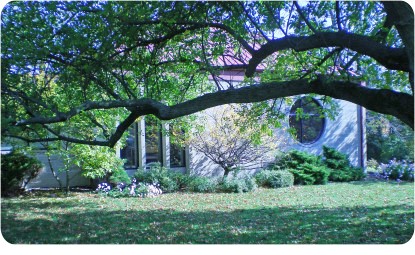
THE GATHERING AT NORTHERN HILLS
460 Fleming Road
Cincinnati, OH 45231
Phone: (513) 931-6651
Email us: gnhuu460@gmail.com
Administrator Office Hours:
11:00AM – 4:00 PM Tuesdays and Thursdays
If you’re searching for a religious home where people honor each other’s beliefs and gather together as one faith, we would like to invite you to learn more. You will find we are a loving, open-minded religious community that will encourage you to seek your own spiritual path, wherever it leads.
Our members come from Protestant, Catholic, Atheist, Jewish, Hindu, Humanist, and Earth-based background as well as from Unitarian Universalism. You can learn more about Unitarian Universalism on the worldwide Unitarian Universalist Association website
OUR ‘STORY’
In May of 2015, two congregations, Northern Hills Fellowship and the Gathering of Cincinnati, came together to form one community of faith.
The Gathering at Northern Hills, a Unitarian Universalist Community, became established as a merged congregation, with Reverend Doug Slagle as the first minister. Rev. Slagle retired in June 2022.
Here’s a bit of background on the parent churches:
Northern Hills Fellowship: NHF was founded in 1961 by members of First Unitarian Church in Cincinnati who wanted to establish a congregation in the northern suburbs. The fellowship met at the Wyoming Masonic Temple. At its first meeting, 34 adults signed the membership book and more than 40 children were registered for religious education (RE). In 1966 the fellowship purchased the current five acres on Fleming Road to construct a church building, largely to accommodate the children’s religious education program. The first service was held by candlelight on Christmas Eve 1967 in the partially completed building.
NHF was dedicated to non-dogmatic religious education for children and worship services that did not elevate one faith at the expense of others. Sunday morning programs were varied and often experimental. Guest speakers were welcomed for their new ideas, but the most popular speakers were those from within the fellowship who sought to share their personal views of liberal religion. An essential element of the Sunday service became an open discussion following the presentation.
By 1979, interest in seeking ministerial services had increased. Rev. Shirley Ann Ranck became NHF’s first minister in 1980. When she left in 1983, the congregation again became lay-led. In 1987, with financial help from the Unitarian Universalist Association, NHF invited Rev. Gary James to become full-time minister. Under his ministry, membership and RE enrollment increased, plans for an addition to the original building were begun, and a part-time director of religious education and part-time office administrator were added. Many family activities created an environment for this thriving growth, and families found a home where they could share and grow.
From 1992 to 1998, growth continued under three interim and one settled minister. In 1994 ground was broken for an extensive addition to the original building, which was dedicated in 1995. The congregation broadened spiritually with new members coming from a variety of religious perspectives. Rev. Morris Hudgins was called in 1998 and during his term NHF became active in many interfaith organizations. The congregation was a big part of the Carter Reconciliation to atone for past racial discrimination by the American Unitarian Association. Through Rev. Hudgins’ sabbatical at the Freedom Center, NHF became involved in other Greater Cincinnati reconciliation projects, focusing on diversity within the congregation and the wider community. The Welcoming Congregation curriculum was offered and the Fellowship became an official Welcoming Congregation for all people irrespective of gender identity or sexual preference.
In 2007, Rev. Bruce Russell-Jayne became NHF’s fifth full-time minister. Creative Sunday services during this period included chancel dramas, reader’s theater and celebrations of Mardi Gras and pagan holidays. A summer Chalice Camp was started as an extension of the active RE program. After Rev. Russell-Jayne left in 2011, Rev. Joan Kahn-Schneider served as half-time consulting minister to the congregation until 2014 when NHF again became lay-lead until merging in 2015 with The Gathering.
The Gathering of Cincinnati: The Gathering was “born” on June 22, 2003 when a group of individuals gathered for prayer and mutual support. Initially meeting in the homes of its members, the Gathering eventually began meeting at the Old St. George church located in Clifton, Ohio. In 2005, the congregation chose to relocate to Over-the- Rhine area of Cincinnati, a culturally diverse inner-city community. The congregation chose this location as a way to purposefully express its values in behalf of social justice for the poor, homeless and dispossessed.
Pastor Steve Van Kuiken was the first Pastor of the Gathering. The church was founded after Steve was removed as a Pastor within the Presbyterian church because of his advocacy for the rights of gay and lesbian persons. Steve performed several same-sex marriages and supported the ordination within the Presbyterian church of self-avowed non-celibate gay and lesbian Elders and Pastors. After his removal, a group of supporters coalesced around him to form the nucleus of the Gathering.
In 2007, the Gathering was formally invited to affiliate with the United Church of Christ national denomination. Pastor Van Kuiken was accepted as an ordained minister in that denomination. The UCC has long expressed progressive values including its support of gay and lesbian marriage. The Gathering immediately became an Open and Affirming UCC congregation meaning that it openly celebrates gay, lesbian, bisexual, transgender and questioning persons.
